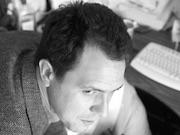Informing informal education

When we hear the word ‘education’, most of us (consciously or unconsciously) reach for the ideas of formal education, classrooms, teachers, certificates and authority. These are the easy and obvious stereotypes because they are most prominent in our cultural context. These are the measurable forms, and the ones which gain most funding opportunities because of their familiarity. What I am interested in, however, is developing the informal educational landscape and opening out new possibilities of in learning. I shall be telling you about what the Ragged University is trying to embody.
The Ragged University project takes forward the grand history of the Ragged Schools, and has been running for over five years, exploring and evolving understandings of knowledge building and exchange in informal settings. The reason the project has emerged this way is simple; I wanted to avoid a ‘more of the same’ attitude, and develop something which represented the diversity of human experience that we encounter on a day to day basis. Life endlessly presents us with new and fascinating combinations and curiosities; the messy unexpected and the unique – we only need to spend a day with a child to have this acutely highlighted to us.
So much of life happens outside of the structured and ritualised spaces we painstakingly build. We have boardroom meetings and show meticulous PowerPoint slideshows but discover that we go to the pub afterwards where the deep connections happen. We go to densely nutritious lectures where we are exposed to a lifetime’s thinking, and discover that it is only over coffee later where we get to rehearse the ideas encountered that light bulbs click on. The structured and institutionalised spaces rely on these informal links to bring together, bind and make sense of the regimented spaces – they are symbiotically required of each other.
For the purposes of Ragged University, it was essential to make use of the informal spaces that traditionally people made use of to meet with other people; part of the core the aim of the project being to embody community through engendering the act of communing. When looking at institutional and formal spaces, I realised that they had been formed for specialised purposes. They have their own cultures which suggest a clear purpose and way of being in those spaces. Being aware of this was important as people can find formal spaces imposing and forbidding; they impose on our behaviour by way of their purpose. Even trained people can suffer from ‘impostor syndrome‘.
Informal spaces hold the qualities of being more flexible and welcoming; they are more malleable to the people who are in the space, and therefore – in a sense – more democratic. Ways of being and rules of conduct, as well as purpose and means of achieving that purpose, are negotiated and re-negotiated constantly by the people collecting in the social space. Professor Ray Oldenburg talks about ‘third places’ – places other than the home and work – in which we gather. He refers to them as ‘great good places’, and describes them as having complex social function which we need to recognize and support.
It was in these types of spaces that I saw great untapped possibilities in terms of education. An educational context which we could negotiate and re-negotiate; one where we could meet old friends and discover new friends. One which was flexible to the needs of those inhabiting the space rather than a space which shapes the people who move inside it. This is the setting of the Ragged University as an idea.
The Ragged University emerged as a place of learning where place denotes belonging for everyone. Organisationally it is critical to avoid there being decided and set views of knowledge; instead the project works on the exercise to discover the author in each person… Everyone is a Ragged University, accredited with their life experience, and with a membership of one. People talk and share what they are passionate about, doing all the things it takes for a human to muster and tell the story of what they have learned; we learn through teaching and develop our character in doing so.
There is no formal certificate. There are no formal exams. It is not about CVs and creating an unnatural gravity around finance or ’employability’. It is not about being the world authority on a subject – it is arguable that no-one can be this as knowledge is a joint venture; a public endeavour. Much more than all of this, it is about valuing knowledgeable people and creating a setting where anyone can flourish. The project is about education as a public good, a commons which belongs to us all, and to which we all belong. We welcome contributions to the Ragged University project such as writing an article or doing a talk: to consciously share what you know in an informal space or with your local community education project.
Alex Dunedin runs The Ragged University











Responses